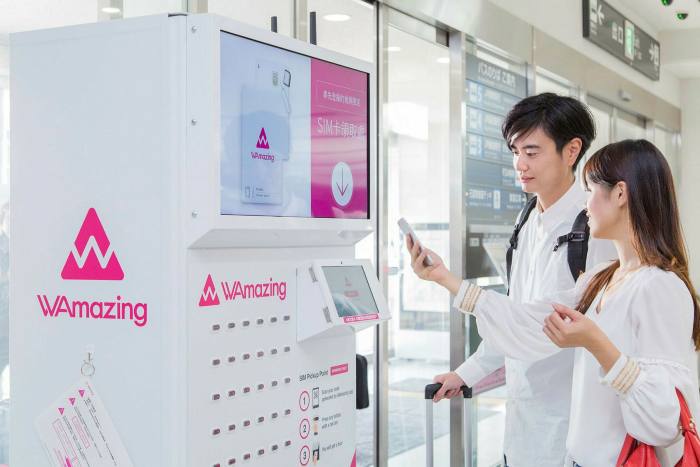Japan plans to tap the $1.5tn might of the world’s biggest pension fund to build a desperately needed domestic start-up culture after decades of failure by the country’s financial sector.
Unveiling the “grand design” of Prime Minister Fumio Kishida’s “new capitalism” agenda, his cabinet this week announced a push for the huge Government Pension Investment Fund to increase funding for start-ups.
The move to invigorate the start-up sector is part of Kishida’s economic programme, a hodgepodge of promises to invest in human capital, decarbonisation and technology that has been criticised for a lack of clarity.
The government said it was working to boost the number of start-ups 10-fold over five years and will also promote other measures including helping new businesses bid for public procurement projects and making it easier for founders to access loans.
“Fostering start-ups is the key to promoting the dynamism and growth of the Japanese economy and solving social problems,” the agenda said.
It did not give details on how GPIF funds would be channelled to start-ups, but the Keidanren, Japan’s largest business lobby, in March called for use of the ¥10tn ($75bn) the fund has available for alternative investments.
While the GPIF puts the bulk of its money in equities and bonds, it can invest up to 5 per cent of its total assets in alternatives including private equity and real estate. As of March 2021, however, it had allocated only a paltry 0.7 per cent to alternatives — and of that, only a sliver went to private equity, which includes venture capital investments.
“The impact of using GPIF money to invest in start-ups must be huge given the giant size of the fund,” said Fumiko Kato, chief executive at start-up WAmazing, which provides overseas tourists in Japan with translation and booking services. “It will not only contribute to the growth of start-ups, but also improve pension fund performance through potential high returns.”
Kato added that given the challenges in identifying what she called “star hits”, it would make sense for the GPIF to invest indirectly through venture capital funds that had the necessary knowhow.
Naoko Ogawa, a director at the Keidanren, said the GPIF could make long-term profits from early-stage companies. “It is great to see that most of our proposals on boosting start-ups have been incorporated in the grand design,” Ogawa said.
Although Japan’s start-up scene has become more active over the past decade, it still lags behind other major economies. According to CB Insights, Japan is home to only six unicorns, or start-ups with a value of more than $1bn, compared with 614 in the US and 174 in China.
Research by Japanese information provider Initial shows that start-ups in Japan raised about $5.8bn from VCs last year, a 46 per cent rise from a year earlier, but still far behind the $329bn in the US.
Ogawa said pension funds played an important role in start-up funding in the US. In Japan, GPIF investment could be followed by private businesses such as insurance companies to help break a cycle in which underfunded start-ups failed and thus discouraged further investment in the sector.

But GPIF investment in start-ups could face opposition within the relatively conservative ministry of labour that controls the fund. Ministry bureaucrats previously resisted reforms by former prime minister Shinzo Abe that gave investment professionals greater say at the fund and tilted its portfolio into more risky assets.
The risks inherent in investing in small, often unprofitable companies were underlined last month, when Japanese conglomerate SoftBank’s Vision Fund, one of the world’s largest start-up investors, posted an annual loss of ¥3.5tn.
Shingo Ide, chief financial engineer at NLI Research Institute said strong controls and increased transparency would be necessary to ensure the GPIF focused on growth-oriented investing.
“The success of this programme depends on whether GPIF can make pure investments without political interference — it’s absolutely not going to work if it is using a part of its money to help start-ups because politicians are asking it to do it,” Ide said.
The agenda approved this week also included plans to help start-ups compete for public contracts from the national government.
Yusuke Mizuno, who runs education start-up Life is Tech, supported the move, saying a scheme that made it easier to bid for local government contracts had helped spread adoption of his company’s software.
“This scheme not only allows more funding to be directed to start-ups, but it also gives them a credibility boost,” Mizuno said.
The Kishida administration also committed to eliminating the need for personal guarantees or use of personal assets such as homes or cars as loan collateral by start-up founders. An agency under the economy ministry has already started guaranteeing up to half of loans given by banks to tech start-ups.
“It takes money and time for deep tech start-ups to launch a business,” said Shinya Nanno at the Organisation for Small & Medium Enterprises and Regional Innovation. “Banks, on the other hand, are more reluctant to lend money to them than to their general customers. So we want to help bridge that gap by sharing risks with banks,” he said.
Mizuno, of Life is Tech, said start-ups were crucial for Japan’s future.
“In a country where population is falling, innovation is a key to making money — Japan should aim to become a country where entrepreneurs can grow and innovate. That is very important for Japan’s revival,” he said.

